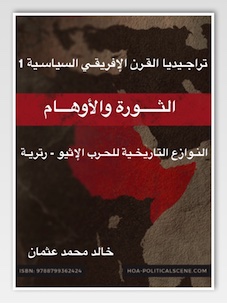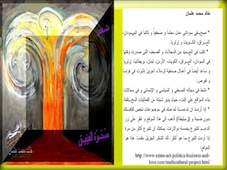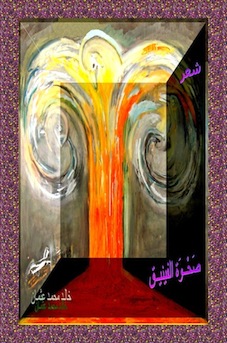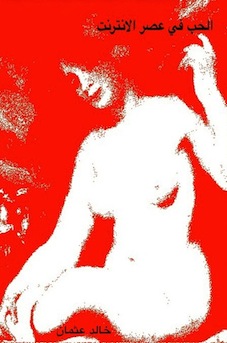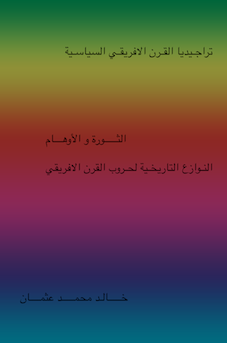The Sudanese Song Poetry Themes!
What Have The Sudanese Song Poetry Themes in Common Sense?
The Sudanese song poetry has many themes. It is not for love only. Sometimes, even love songs are connected with the national theme in the song poetry.
There is also a stand alone type of song poetry I call the seasonal and the activism / labor poetry that celebrates the working class, or energizes them at work, as individuals and as groups.
This is very clear through the following article. In addition, make sure to read the resources at the Sudanese song, the Sudanese music and some links included within here.
It is well known that when the Sudanese sing, the lyrics they sing attract warm feelings colored with the rhythm of the fifth musical scale.
There are so many kinds of lyrics in the Sudanese poetic literature, which include sentimental poetry, political poetry, and traditional seasonal and occasional poetry.
However, the third kind of the Sudanese lyrics includes the two types of lyrics sometimes.
Tick, Tack, Tock . . . SideBar Before the Go ;-)
If you found this article interesting, please do like it above, tweet it, share it and pin the Sudanese images using the small button on the page. You can even build web pages like this and make additional income too here.
Sudanese Song Poetry Themes - Seasonal and Occasional Songs!
The seasonal songs are performed in the Sudanese song poetry during seasonal movement of the people, especially the herders, when they move from place to place following the grass to feed their cattle.
They are also preformed during the seasons of the year when they perform their agricultural and home pastoral activities, feeding, or milking their livestock.
The Sudanese song poetry is original, natural and pure and it may describe the way they are living, or doing things, their warm feelings and the social bonds that fasten the ties between them and their surroundings.
They sing those kinds of the Sudanese song poetry the first time without using any musical instruments. For example when the porters in the port of Sudan sing during their jobs, they do that to elevate their souls and abilities to do the job and embellish the field of their activities with warm pictures to amuse themselves.
The Sudanese song poetry describes the activities and the atmosphere of the activities. It begins sometimes by simple words that describe something, or perhaps a joke and then everyone adds to it.
The music comes from their throats in such kinds of the Sudanese song poetry and the tomes are embedded into the lyrics itself, which makes the Sudanese song poetry rich.
The Sudanese sing in varied dialects. Those dialects run in musical tones without musical instruments. However, the musical fifth scale adds to them a warm rhythm.
They actually express their unity in diversity until politics amalgamated with fundamental religious beliefs interferes not to prohibit music only, but to shrink this unity in diversity.
Political systems after the independence prove that they always amalgamate with fundamental religious beliefs during two kinds of dictatorship I and other intellectuals call the military dictatorship (and this is obviously well known) and the civil dictatorship, which is unknown yet.
However, we got its concept from the political practices throughout the Sudanese modern history.
The Sudanese Jazz takes its music and wording to invent new areas in the Sudanese music. It keeps the Sudanese traditions and customs warm and diversified too.
It makes this diversity amalgamated in the rainbow of the Sudanese music. This is why these Sudanese kinds of arts are exceptional.
During more than 25 years of absenteeism in Sudan and while the Sudanese religious regime rules, the Sudanese song poetry and its musical inheritance has swept away.
They swept away together to the neighboring countries at the east, as Eritrea and Ethiopia, the neighbouring countries at the south as Kenya, Uganda, DRC and Central African Republic, all of which has taken the Sudanese musical rhythm to colour it with their accents and dances.
However, they have their musical fifth scale too and it is making unity in diversity too. This is actually, what brings people to unite through music and solve their darn political problems in Sudan, the entire Horn of Africa, or the entire world.
Strangely, even the Sudanese civilization has been swept away in favor to Egypt, because the called religious regime has much to do than to care of what they think as "civilization of infidelity".
Music gets the people together and it has a powerful political message to rebuild the forgotten unity and reunion the people in the IGAD (Intergovernmental Authority on Development).
The Grassroots Development of the Sudanese Song Poetry Themes!
This module highlights the development of the Sudanese song poetry through decades. Rich lyrics and musical environment in Sudan have streamlined the Sudanese song poetry with some stand-alone styles.
People sang in Sudan before the development of TV shows, wireless technologies and cables throughout the planet. I found that it is difficult to translate some local terms in the Sudanese language into English, so I just worded them in English letters. I herein, gave them more highlights to explain what they mean.
When the Sudanese song poetry began traditionally, it began with that local kind of songs called "Haqiba song" in which the Arabic term means "Bag".
So, it is the "Bag's song" and it is still sung. In such public terms in the Sudanese Arabic language, people signalize the single word meaning the plural. However, they sometimes say "Haqiba songs".
People hang with this song because it is intimate and pure and it presents a world of virginity, where virginity is the method and the ethic that develops the Sudanese moralities decades after decades.
Then from the same kind of that Sudanese song poetry came the "Tomtom" song, which performs with a different rhythm in the "Bag's Songs".
Socio-political Impact of the Sudanese Music
The Sudanese song poetry began intimately to hit the emotional nerves of the people in Sudan with rich metaphoric, adjectival and descriptive images and sincere words of love describing the girl the poet or the singer fell in her love.
However, in exceptional cases the poet or the singer made the song for other beautiful girls in a time that Sudanese girls had difficulties to get outdoors.
The national traditions were tough, most of the girls had female genital mutilation (FGM) and girls only appear in social ceremonies with other women.
Having the Sudanese traditional music touched the national nerves during the British colonization to the country, some pioneer singers and Sudanese poets symbolized some songs for the nation without having to mention it in their songs.
They used names of girls to praise their dignity, honour, and generosity and they sang the Sudanese song poetry for the nation. The first emotional and political song in this regard was a song called "Aazah".
The name is simply a girl's name. This name symbolizes Sudan in the metaphoric, adjectival and descriptive poetry.
This national song energized the people. The people reacted to this song by organizing political movements to get their country free. In this circle of national influence, the 1924's revolution had strong impacts on the political struggle.
Progressive national activities evolved to get the independence from Britain.
The Sudanese Music and the Nonalignment Movement
How the national song has built solidarity with other revolutions?
Some national songs responded to the global liberation movements. Among these Sudanese national songs, some songs called for unity with Egypt, and sang lyrics against "Hitler" and "Mussolini" during the 2nd world war.
Those national songs embodied the spirit of the people and all the hope and ambitions to gain unity, justice, peace and freedom.
In addition to a multitude of factors and circumstances during the national struggle, I consider these songs as national seeds of modern political struggle.
We have not heard of someone who sang for the Nonalignment Movement during the warm struggle of the Non-aligned Countries in the mid 1950s, except from Sudan.
The Sudanese Music and the Afro-Asian Struggle!
The Spirit of Bandung Conference in a Sudanese Song!
Ustaz Tajesser el-Hassan wrote the first warm poetry "Asia and Africa" for the Nonalignment Movement during the struggle of the movement and after the conference of Bandung in 18-24 April 1955.
Sudanese singer Abdul-Kareem al-Kabli sang the poetry and enriched it by his music to become a popular song. "I, my comrade have not visited Indonesia, Sukarno's land and have not seen Russia", was intimate song to most of those socialist people in Sudan.
The Sudanese song poetry celebrates the national political struggles of many lands, like Algeria, Morocco, Egypt, Kenya, Indonesia, New China and the Russian Revolution.
The former Egyptian President Jamal Abdul Nasser, as one of the five leaders of Bandung Conference visited Khartoum in 1960 after the conference.
He might have asked to hear the song as the first song the spirit of Bandung has inspired the poet to write it. Therefore, Alkabli sang "Asia and Africa" in the National Theatre of Omdurman.
A Couplet from the Chant
When I play, O Ye My Heart, the old anthems,
And the dawn rises on my Heart,
On the wings of a cloud
I shall sing and sing the last of the canzone
For the dearest land
For the black shadows in Kenya's forests and Malawi's
For my comrades in the Asian countries
For Malaya and the young Bandung
For the green nights of pleasure in New China
Sudanese Musical Instruments!
The Sudanese people use many different African musical instruments, Arabic musical instruments and local musical instruments when they play music.
They began with their own local musical instruments they made from trees, plants, animals bones, horns and skins, metals, tins, stones and some other materials from the nature.
Yes, they never let a stone unturned over. This habitual energy could explain their creativity, ability and enthusiasm. They use in addition to their traditional drums, Oud, Kamanjah (Kaman) (violin), Rababa, Riq, and horns.
As it is integrated deeply in the African melody, the Sudanese music is played per diem to perfume the public atmosphere by love, unity in diversity and peace.
The Sudanese use different kinds of drums as basic instruments along side the modern incorporated musical instruments like different kinds of guitars, cello, double bass, oboe, piano, organs, saxophones, saxhorns, flutes, harmonicas, violins and trumpets.
The Sudanese musicians compose their Sudanese music using some of those musical instruments and supporting all this musical performance by hand-clapping, fingers clapping, foots tamping and throats sounds.
Mambo Becomes the Lightweight Dance in the Rhythm!
Is it the Influence of the Latinos in the Sudanese Life or the Influence of the Sudanese in Latinos?
The Sudanese mambo has its magical movement when girls brace the dancing circle. The word mambo goes metaphoric too. The delighted hearts of the youth jump warm and the rhythm takes their feet to kiss Cuba Cubana lightly and fly from the ground like white birds.
Sayed Khalifa has his own style in the Sudanese music. He alone could make the Mambo song takes that rhythm to flavour the hearts of the youth and flavour the Sudanese song with a new style of performance during the 60s and the 70s. He became more popular by his stylized songs. I wished to say (stylished) songs.
Cuba Cubana, the sand in Brazil became a name for a popular cafeteria in the central Khartoum, which has been the favourite meeting place for the Sudanese elites of the bourgeois, pensioners, journalists, artists and university students.
One of the most embracing thought about the Sudanese song poetry is that even alphabetically illiterate people working as tickets controllers in the local buses could make and sing such poetry using local words.
And of course a group of people called "Shamasa" have also their songs. The "Shamasa" as known as down lass citizens in this mysterious country and that makes some of its tragedies.
In addition to the Sudanese song poetry, you may also be interested in the following literary and cultural pages in the HOAs Comprehensive Projects:
HOAs Cultural Project| HOAs Journalists| HOAs Journalists Project| HOAs Poets| HOAs Poets Bookshop| HOAs Poets Project| HOAs Self-Publishing| Squadron of Poets| Suakini Cat| القط السواكني| Superstitions| The Frame| البرواز| شيكاغو والهنود السودانيون | أدبيات التعليق السياسي حول سياسات القرن الافريقي| للكذب ثلاثة ألوان|
If you liked the Sudanese song poetry, please tweet it and share it with your social media network. You can use the following comments form to comment on the Sudanese song poetry.
Are You Intellectual, Journalist, Poet, Artists or Writer?
Tell us about yourself as intellectual! This works as a CV too. Add your CV to it at the bottom of the big box.
Use this form whether you are intellectual, writer, essayist, playwright, researcher, poet, novelist, screenwriter, songwriter, journalist, freelancer, sculptor, painter, caricaturist, decorator, musician, dancer, caricaturist, acrobat's player, scenarist, actor, performer or critic.
Please click on the question marks to read more instructions. This will help you fill the form properly.
Comments on the Sudanese song poetry appear above this paragraph and below the form.
HOA Political Scene| HOA Political Scene Blog| Arabic HOA Political Scene| Contact Us| Political Scene| Political Site Map| Political Section| Political Inspiration| Political Magic| Political News| Politics of Myth| HOA Political Scene Newsletter| Political Sense Journal| Horn of Africa's Journal| Horn of Africa's Newsletters| Horn of Africa's Bulletins| Horn of Africa's Ezines| Horn of Africa's Political Newsletters| United States of the Horn of Africa| USHA| USHA Framework| Horn of Africa's Network| Humanitarian Network| HOAs Refugees| HOAs Refugees Project| Horn of Africa's Bookshop| HOA Calls| HOAs Data Analyzing| HOAs Videos| Djibouti| Djibouti's Political Scene| Eritrean Political Scene| Ethiopia's Political Scene| Kenya's Political Scene| Somalia| Somali Political Scene| Sudan's Political Scene| Uganda's Political Scene| Chad| Chadian Political Scene|
"Like" above, pin the pictures & "tweet" below to express your love!
TweetHorn Africa's Political Tragedy on iTunes
 hoa-politicalscene.com/horn-africas-political-tragedy.html - Horn Africas Political Tragedy In An iBook by journalist & poet Khalid Mohammed Osman on iTunes.حملة ١٠٠٠ كتاب لدعم مشروعات سودانية وطنية
hoa-politicalscene.com/horn-africas-political-tragedy.html - Horn Africas Political Tragedy In An iBook by journalist & poet Khalid Mohammed Osman on iTunes.حملة ١٠٠٠ كتاب لدعم مشروعات سودانية وطنيةLove in the Internet Time on iTunes
Rising of the Phoenix on iTunes
Free Political Newsletter with some Good Freebies for You!
Use the newsletter's form at the top left column to subscribe to the HOA PoliticalScene Newsletter. You will then receive your freebies when you confirm your subscription. See example pictures of our free stuff below.
 |
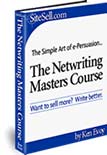 |
The power of political thinking is essential for people to achieve democracy, justice and real socialist system! Explore, Freelancing Jobs, Political books, Horn of Africa! Politics Economy Uganda, political studies, bachelor political science, etc...
